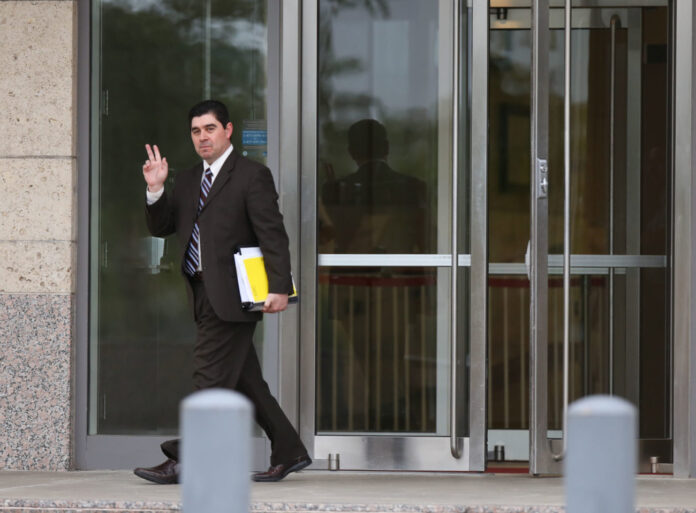Former Cameron County District Attorney Armando R. Villalobos continues his request to be released from federal custody under the CARES Act due to high risk of contracting COVID-19.
Villalobos on April 28 filed a First Supplemental Emergency Motion for release to home confinement four days after his first motion for release was denied, court documents reflect.
Villalobos was sentenced to 13 years in federal prison for his role in a bribery and extortion scheme. He is currently incarcerated in the Bureau of Prisons Federal Correctional Institute in Forrest City, Arkansas.
According to the U.S. Attorney’s Office for the Southern District of Texas, jurors in Villalobos’ trial found that he solicited and accepted over $100,000 in bribes and kickbacks in the form of cash and campaign contributions in return for favorable acts of prosecutorial discretion.
U.S. District Judge Fernando Rodriguez, Jr. signed the order denying Villalobos’ first emergency motion for release to home confinement on April 24.
A response to his first emergency motion filed on April 14 to reduce sentence seeking his release due to the risks posed by the virus stated he did not identify “extraordinary and compelling reasons” for a sentence reduction. Such reasons, like a medical condition, must fall into one of five categories.
“The mere existence of the COVID-19 pandemic, which poses a general threat to every non-immune person in the country, does not fall into either of those categories and therefore could not alone provide basis for a sentence reduction,” the court wrote.
The document stated Villalobos suffers from hypothyroidism, GERD, high cholesterol, kidney stones, arthritis, and that he was recently diagnosed with hypertension. However, the court found that he did not provide sufficient documentation for his asserted medical conditions and therefore couldn’t meet his burden.
“Not only do Defendant’s asserted conditions not itself rise to the level of severity required under the policy statement, but he has not shown he has been diagnosed with any condition identified by the CDC as increasing a person’s risk for developing serious illness from COVID-19,” the response stated.
“Defendant was a lawyer and elected public official who greatly abused his power and violated the public trust over many years in order to personally enrich himself.”
A copy of the emergency motion for release detailed a list of requirements qualifying inmates for release under the CARES Act, including that the primary offense is not violent and that the inmate must have served 25% of the sentence.
Villalobos, who is representing himself, argued that he met all eight requirements from the Federal Bureau of Prisons, though Rodriguez’s April 24 order cited the denial of his home incarceration request in his decision to deny Villalobos’ attempt at release.
In his order, Rodriguez referenced sections of the U.S. Code requiring defendants to first fully exhaust all administrative rights to appeal a failure of the Bureau of Prisons to bring a motion on the defendant’s behalf, or wait for the lapse of 30 days form the receipt of such a request by the warden of the defendant’s facility.
In Villalobos’ case, Rodriguez found that he did not satisfy either requirement, as he requested the sentence reduction less than 30 days before he filed the lawsuit. The warden recently denied the request but confirmed that Villalobos hadn’t exhausted all administrative remedies.




